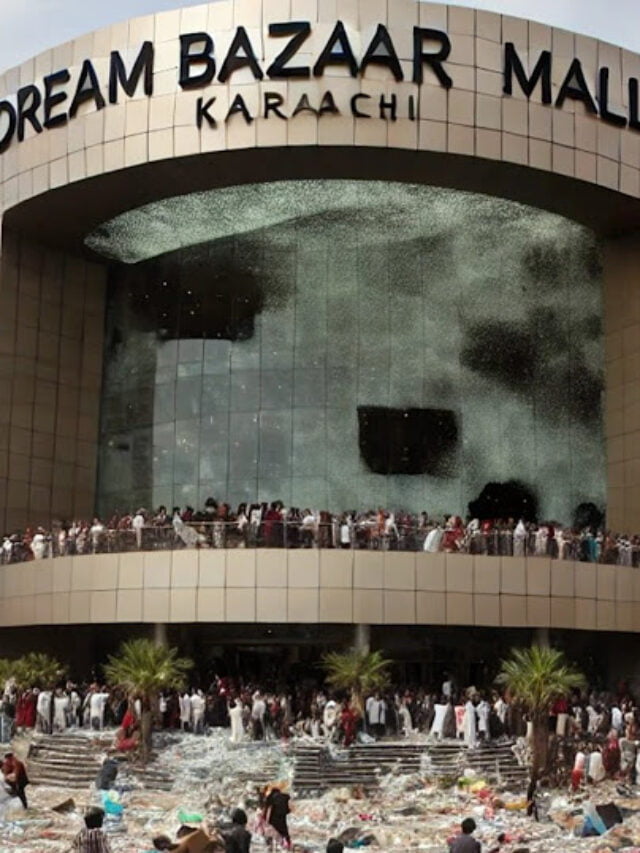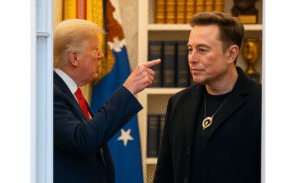In a notable development amidst the escalating Israel-Hamas war, Hezbollah, the powerful Lebanon-based Shiite militant group, has endorsed Lebanon’s first ceasefire proposal. The endorsement comes amid growing regional tensions following an unprecedented surge of violence since the October 7 Hamas attack on Israel.

While Hezbollah has not officially engaged in full-scale combat, the group’s endorsement of the ceasefire reflects its influential role in Lebanon’s political and military landscape and raises concerns about further escalation in the Israel-Lebanon border zone.
The Role of Hezbollah in Lebanon
Hezbollah, which holds significant political power in Lebanon and has been labeled a terrorist organization by the United States and Israel, plays a dual role as both a political party and an armed resistance group. Over the years, it has maintained close ties with Iran and Syria and has a history of confrontations with Israel, most notably the 2006 Lebanon War. In this context, Hezbollah’s decision to endorse the ceasefire is seen as a potential sign of restraint, aimed at preventing a broader regional conflict while maintaining its firm anti-Israel stance.
Middle East analyst Hassan Mneimneh notes, “Hezbollah’s decision to endorse a ceasefire at this stage can be interpreted as a strategic move. While it allows them to signal their opposition to Israeli aggression, they are also keen to avoid an all-out war that could severely destabilize Lebanon.”
The Escalating Israel-Hamas Conflict
The endorsement comes against the backdrop of the ongoing Israel-Hamas conflict, which has claimed the lives of thousands on both sides since the deadly Hamas surprise attack on October 7, 2024. In retaliation, Israel has launched a series of intense airstrikes on Gaza, leaving large parts of the Palestinian enclave in ruins. The violence has not only strained Israel’s relations with Palestinian factions but has also heightened tensions across the Middle East.
Since the conflict erupted, more than 1,500 Israelis and Palestinians have died, according to reports. Israel’s airstrikes have targeted key infrastructure in Gaza, with over 6,000 rockets fired by Hamas into Israeli territory. Meanwhile, Hezbollah has launched limited missile strikes from Lebanon into northern Israel, testing the fragile security situation along the Lebanon-Israel border.
International Reactions and Diplomatic Efforts
Hezbollah’s endorsement of the ceasefire echoes calls from the international community for de-escalation. Leaders from the United States, European Union, and the Arab League have urged both Israel and Hamas to exercise restraint, warning that the violence risks spiraling into a larger regional conflict. However, Israel has rejected calls for a ceasefire, stating its intention to dismantle Hamas’s military capabilities and secure its borders.
Diplomatic Insight:
Former U.S. diplomat Dennis Ross argues, “While international pressure for a ceasefire is mounting, the reality on the ground is far more complex. Hezbollah’s involvement adds another layer to an already volatile situation, and any resolution will require addressing both the immediate crisis and the longer-term grievances in the region.”
Hezbollah’s Strategic Calculations
Hezbollah’s endorsement of the ceasefire is likely part of a broader calculation to balance its domestic political interests with its alliance with Iran and Syria. The group’s leader, Hassan Nasrallah, has repeatedly vowed to support Palestinian resistance against Israel, but Hezbollah’s direct involvement in the conflict could push Lebanon into a war it cannot afford.
Also Read : Tommy Paul Stuns Alejandro Tabilo with Incredible Comeback at Shanghai Masters
Lebanon is already grappling with a severe economic crisis, political instability, and widespread dissatisfaction among its population. A full-scale war with Israel would further exacerbate the situation, leading to more casualties, infrastructure damage, and a potential influx of refugees. For Hezbollah, endorsing the ceasefire may offer a temporary reprieve from direct military engagement while maintaining its image as a key player in the “axis of resistance.”
Economic Impact:
According to Lebanon’s Central Bank, the country’s economic crisis has led to skyrocketing inflation, and unemployment rates have soared above 30%. An open conflict with Israel could plunge Lebanon deeper into its financial crisis, cutting off trade routes and foreign investment, and worsening the humanitarian situation.
Challenges to the Ceasefire and Risk of Escalation
Despite Hezbollah’s endorsement, the prospects for a long-term ceasefire remain slim. Israeli officials have expressed skepticism about Hezbollah’s intentions, citing the group’s history of aggressive actions and close ties with Iran. The Israeli military has continued to strengthen its defenses along the northern border, preparing for the possibility of further attacks from Hezbollah or its affiliates.
At the same time, Hezbollah has ramped up its rhetoric, threatening to escalate its involvement if Israel continues its airstrikes on Gaza. While the group has refrained from committing large-scale military forces, its missile attacks on northern Israel have raised concerns about a potential second front in the conflict.
Middle East security expert Yossi Mekelberg notes, “While Hezbollah has endorsed the ceasefire, its actions in the coming days will be critical. Any miscalculation or further escalation could drag Lebanon into the conflict, with devastating consequences for both the country and the wider region.”
The Regional Implications
The endorsement also has broader regional implications. Hezbollah’s close ties to Iran have raised concerns in Israel and the United States about the possibility of Tehran using its proxies to further inflame the conflict. Iran has been a vocal supporter of Hamas and Hezbollah, and while it has not directly engaged in the conflict, its influence looms large over the region.
Countries like Egypt and Jordan, which maintain peace agreements with Israel, have been involved in diplomatic efforts to mediate the conflict. However, the fear of a wider war involving Hezbollah, Iran, and potentially Syria remains a pressing concern. A regional conflict could draw in other powers and destabilize the already fragile Middle Eastern landscape.
Conclusion: The Uncertain Path Ahead
Hezbollah’s endorsement of Lebanon’s ceasefire proposal marks a significant development in the ongoing Israel-Hamas war, but the situation remains fluid. While the group’s actions signal a cautious approach, the possibility of further escalation cannot be ruled out. As the conflict continues to unfold, the international community’s calls for de-escalation will play a pivotal role in shaping the next steps.
FAQs: Frequently Asked Questions
1. What is Hezbollah’s role in Lebanon?
they are a powerful political and military group in Lebanon, backed by Iran. It plays a dual role as a political party and an armed resistance force against Israel.
2. Why did Hezbollah endorse the ceasefire?
They endorsed Lebanon’s ceasefire proposal likely to avoid direct military involvement while maintaining its stance against Israeli actions in Gaza.
3. What is the current situation in the Israel-Hamas conflict?
The conflict has escalated since October 7, 2024, with thousands of casualties on both sides. Israel has launched intense airstrikes on Gaza, while Hamas has fired rockets into Israeli territory.
4. How does this conflict impact Lebanon?
Lebanon is already facing economic and political instability, and any involvement in the conflict could further destabilize the country, leading to more economic hardship and potential casualties.
5. What is the international response to the conflict?
The international community, including the U.S. and the EU, has called for de-escalation and a ceasefire, but Israel has rejected these calls, stating its focus on dismantling Hamas.
6. Could this conflict escalate into a regional war?
There are concerns that the conflict could expand, especially if Hezbollah or other regional powers like Iran become more directly involved.
- Canada’s G7 Gamble: Mark Carney’s Invitation to Narendra Modi Amid Murder Allegations

- Elon Musk Calls for Trump’s Impeachment, Endorses JD Vance as Successor: A Political Earthquake in Washington

- Deadly Terrorist attack Tourists Visiting Pahalgam J&K

- MI vs RCB: Top Picks & Strategy for MI vs RCB for Power-Packed XI

- GT vs SRH: Shubman Gill, Ishan Kishan Observe as Mohammed Siraj Showcases Explosive Power in Nets Before Clash

- Will Ishan Kishan Form Comeback in Today’s Match of SRH vs. GT Clash











